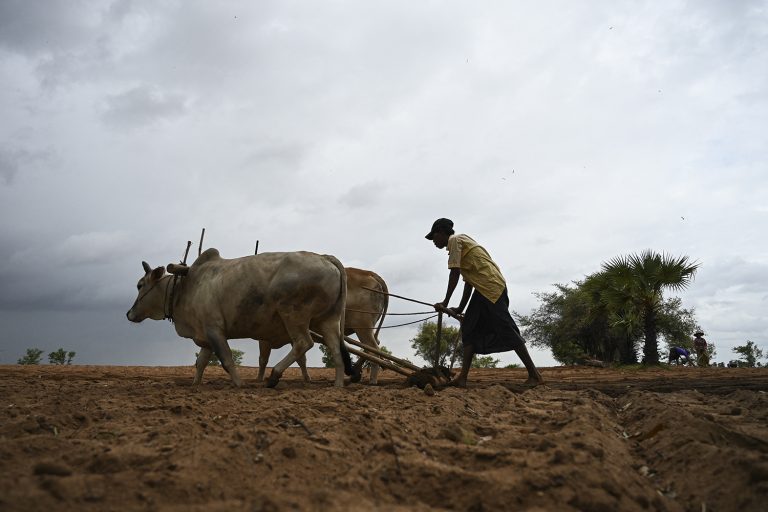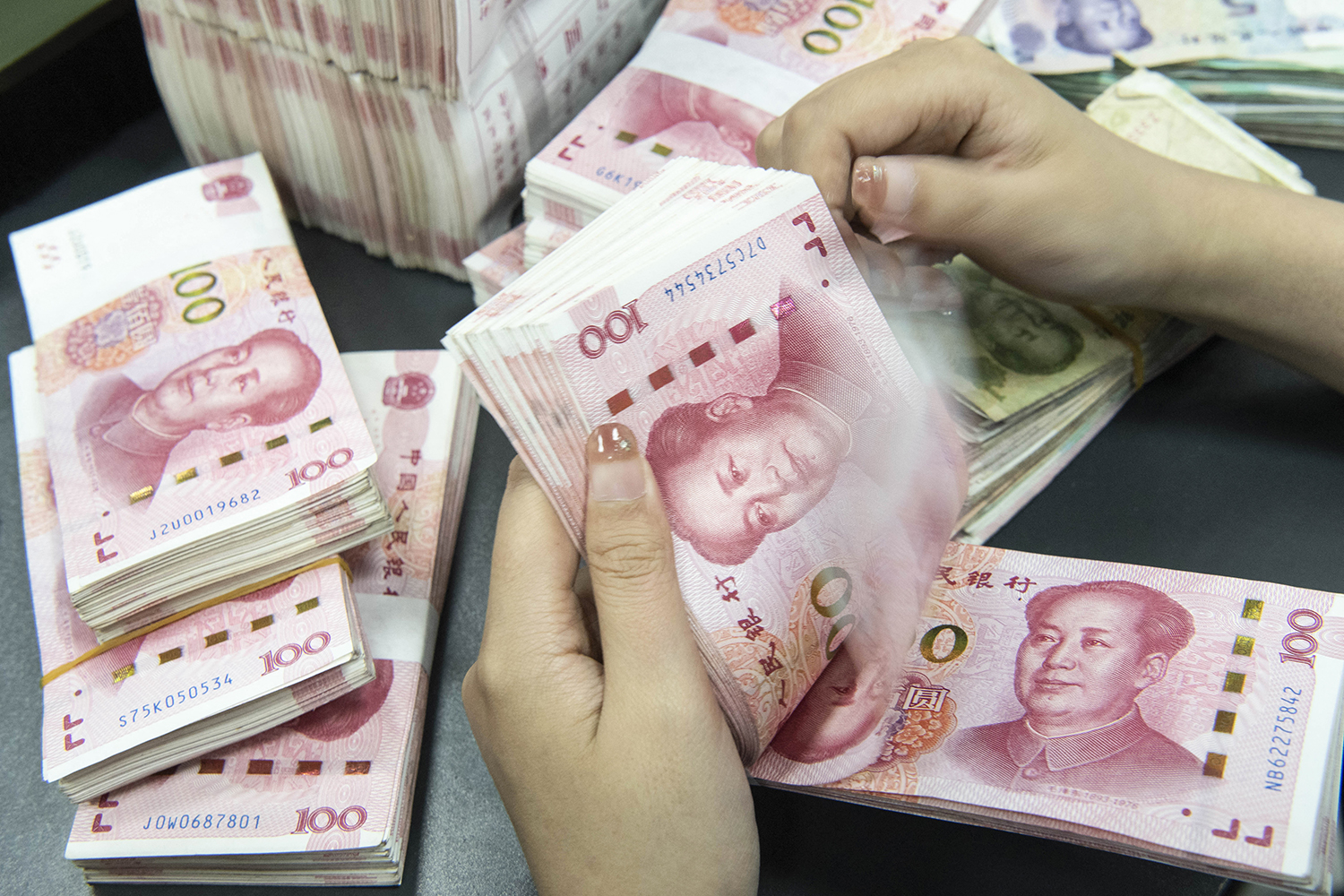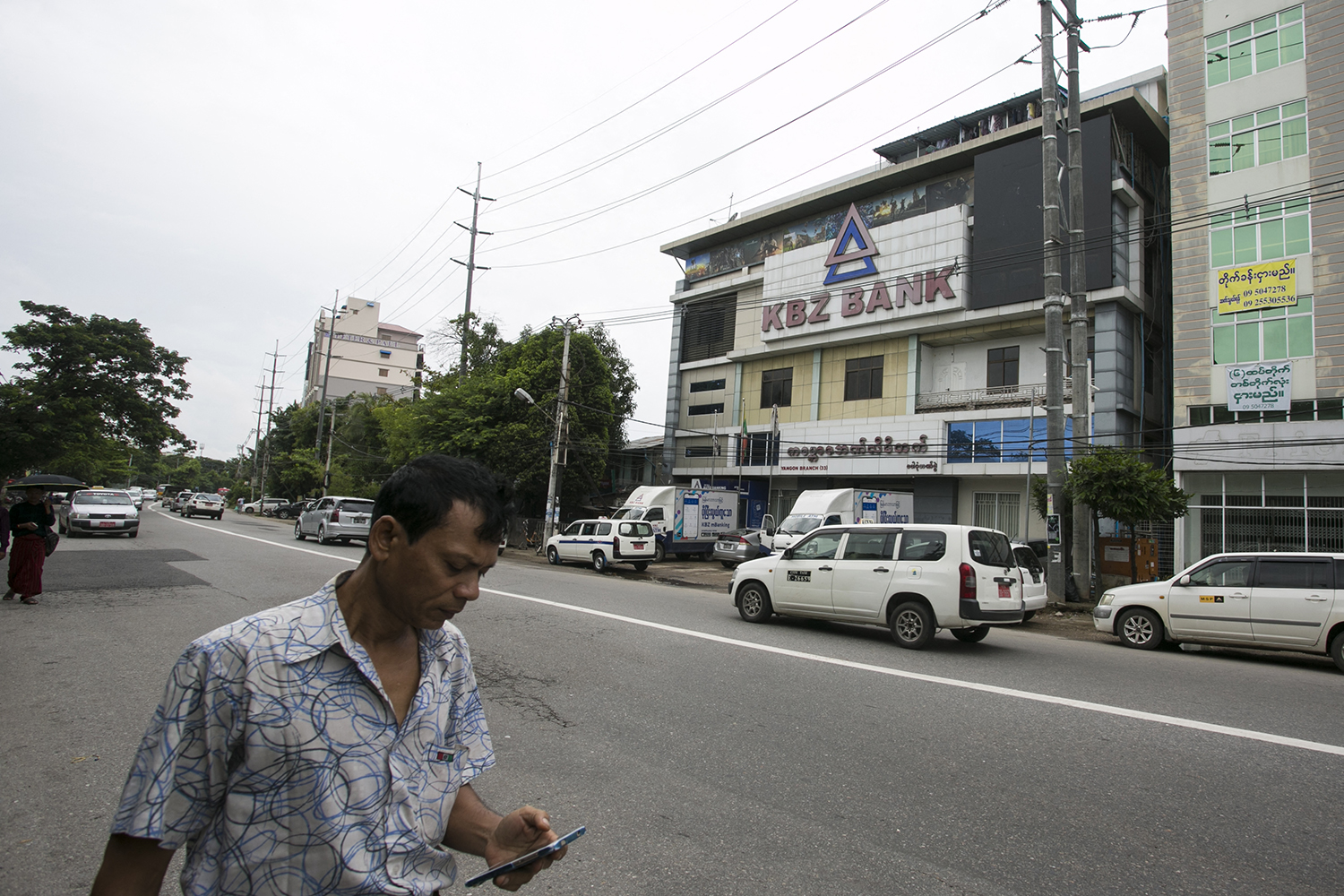A comment by the Central Bank deputy governor in the Pyithu Hluttaw over non-performing loans has caused widespread consternation and resulted in a prompt clarification.
By SITHU AUNG MYINT | FRONTIER
COMMENTS by construction industry tycoon U Khin Shwe about companies being heavily in debt and unable to repay bank loans have caused upheaval at the Central Bank of Myanmar and made depositors jittery.
Speaking in Yangon on August 22 at the launch of the Myanmar Business Association, of which he is patron, the Zaykabar chairman said banks intended to ask companies to repay outstanding loans by the end of September and they might face prosecution if they fail to do so. The knock-on effects of such a scenario would create a crisis that would affect all levels of society down to the grassroots, he said. In an interview with Mizzima, Khin Shwe estimated the number of defaulting companies at about 10,000.
It is well known that many companies are heavily indebted to banks and unable to repay what they have borrowed. A big problem is non-performing loans accrued as a result of repeatedly extended overdrafts to “privileged” companies.
In an apparent response to Khin Shwe’s comments, Pyithu Hluttaw MP U Maung Myint (Union Solidarity and Development Party, Minkin, Sagaing) asked Central Bank of Myanmar deputy governor U Soe Thein about NPLs in the lower house on August 27. Soe Thein replied that banks have a fiduciary duty to adhere to regulations so that the financial system remains sound.
Support more independent journalism like this. Sign up to be a Frontier member.
He said private banks needed to act in line with regulations issued by the Central Bank in July 2017 that require them to reduce the proportion of overdrafts on their books by converting them to term loans, and classifying them as non-performing if the debtor fails to make regular interest payments. Soe Thein continued that banks do not provide loans with their own money but with that of their depositors. He said the CBM had tried to ease the situation but some companies had owed banks for many years and they could no longer be lenient.
Soe Thein’s comments created alarm among companies and bank depositors, and in an attempt to assuage the concerns, the Central Bank issued a statement saying that his comments in the hluttaw did not fully reflect its position. It said negotiations would continue between private banks and their heavily indebted business customers. As the “lender of last resort”, the Central Bank would provide the banks with “necessary support and assistance”. Soe Thein reportedly reacted to the statement by tendering his resignation as deputy governor, but it is unclear whether it has been accepted.
There has been no attempt by many commercial borrowers to repay the principle and interest accumulated over many years on loans and overdrafts. This is despite interest payments being essential for the survival of private banks. Inadequate collateral for loans has also been a big problem. Real estate is used to secure many loans, but has been affected by a decline in prices. It is understandable that the CBM has taken action to address this problem, because the health of the banking sector is its responsibility.
Many crony companies were able to grow rich because they enjoyed the privilege of being able to benefit from loans in the form of overdrafts that were never repaid. They must learn to be responsible and accountable, and they need to accept that a market economy functions best when there is a level playing field. It is unacceptable for them to claim that they cannot repay loans because they are under financial pressure. It is as if they want to create problems in the banking sector and the economy because of their own shortcomings.
It is time for heavily indebted companies to agree a timetable in negotiations with creditor banks to repay the interest and capital of their loans. For the sake of achieving a good reputation, they should try to operate according to the CBM’s standards of responsibility, accountability and fiduciary probity. Doing so will only benefit the national economy.







